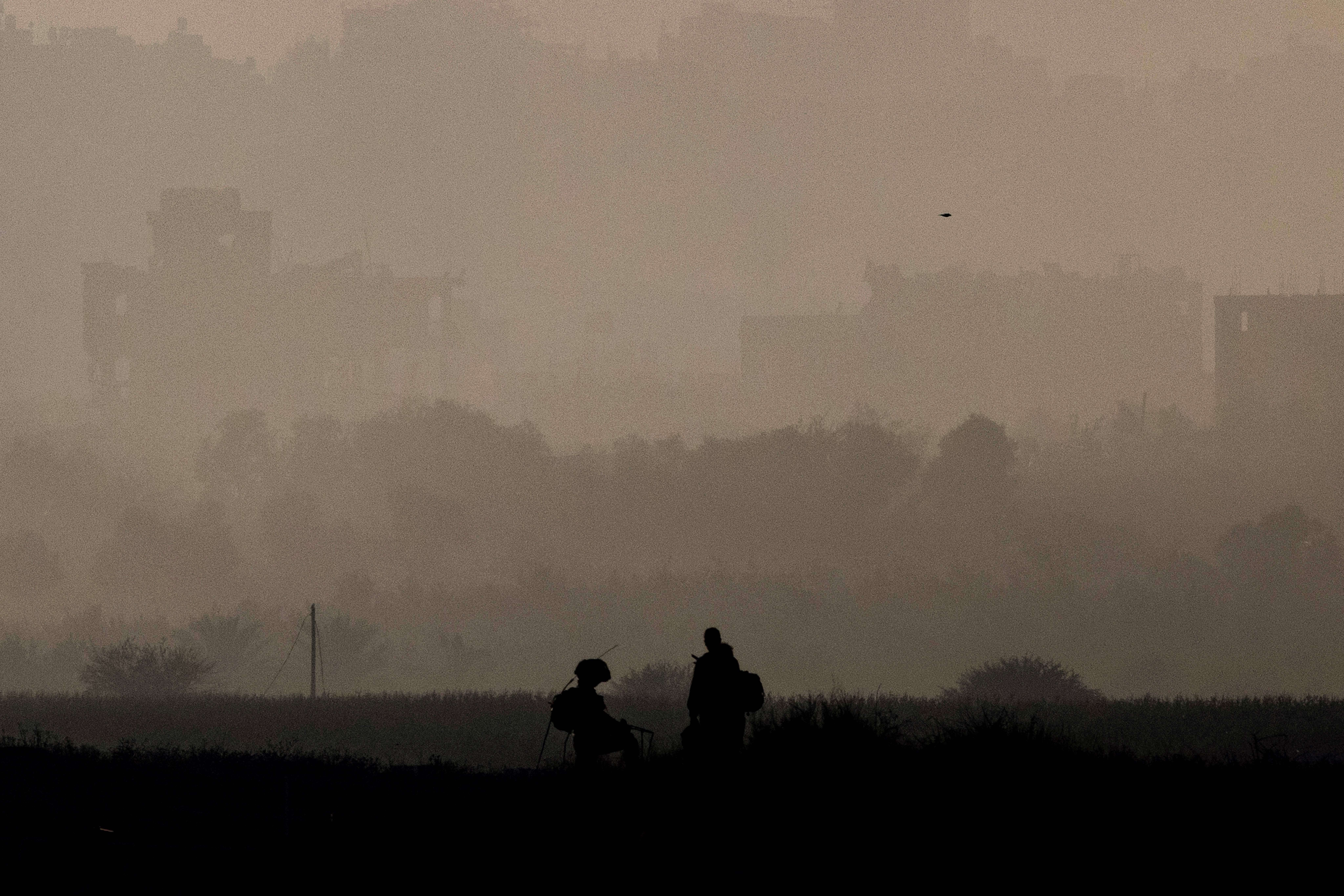A cease-fire would only serve Hamas
Israel must win decisively against the terrorist group. And the United States must do everything in its power to guarantee this outcome.

Israeli soldiers patrol near the border with the Gaza Strip in southern Israel on Nov. 16. Photo by KENZO TRIBOUILLARD/AFP via Getty Images
The stakes of the war between Israel and Hamas are profound not only for the Jewish state, but for the entire free world.
As the war stretches into its second month, international calls for a cease-fire continue to grow. While the images coming out of Gaza are harrowing, a cease-fire, or any inconclusive end to Israel’s war against Hamas, would serve only to embolden enemies of freedom while allowing Hamas time to regroup and remain in power.
Israel must win decisively against Hamas. And the United States must do everything in its power to guarantee this outcome. Failure to annihilate Hamas would have catastrophic consequences not only for Israel, but for the entire world.
On Oct. 7, Hamas terrorists infiltrated Israel by land, air and sea. They savagely murdered 1,200 Israeli civilians and kidnapped more than 200 more to be used as hostages and human shields in Gaza. We know that the murder, torture and desecration of as many Israeli civilians as possible was their goal.
As past precedent clearly shows, they will not stop working toward the murder of Jews just because there is a cease-fire in place. Hamas leader Ghazi Hamad has vowed to continue these acts of savagery in the hopes of achieving the destruction of the state of Israel. This confirms what much of the world has already known: Hamas is a genocidal death cult that cannot be mollified or contained.
Like ISIS, Hamas must be destroyed. Any lesser outcome would not only leave Israel exposed to further attacks from these terrorists, but it would signal to the world — friend and foe alike — that Israel lacks the ability and resolve to neutralize Islamist threats in its own backyard.
A cease-fire before total victory would allow Hamas to regroup and rearm their terror machine while signaling an Israeli return to the failed “mowing the grass” strategy that resulted in the horrific atrocities of Oct. 7.
Global implications
What would leaving Hamas in power signal to the broader world?
It would demonstrate to Israel’s enemies in the Middle East, namely Iran and its allies, that they can commit the most heinous acts of terror against Israel and get away with it. Iran, the backer not only of Hamas but also Hezbollah in Lebanon and the Houthis in Yemen, would surely double down on its proxy wars against Israel and other Western allies in the Middle East. Indeed, Islamists the world over would be spurred to commit further acts of terror with the assurance that whatever retaliation they might provoke would be measured and surmountable.
Currently on the cusp of a new era of peace and prosperity due to the Abraham Accords, the region would witness an emboldened Iran, already on the verge of acquiring a nuclear weapon and committed to dominating the region and annihilating Israel.
Additional Arab states contemplating formalizing relations with Israel are themselves at war domestically with the very same Islamist ideology that Israel is fighting in Gaza. An inconclusive result in the Israel-Hamas war would pour cold water on greater diplomatic normalization and leave these states to wonder what benefits such an arrangement would bring and if it would outweigh the costs.
Anything less than total Israeli victory would also cement a trend of U.S. retrenchment in the Middle East and its de-facto ceding of this region to nefarious forces, like Iran and Russia. After failing to decisively engage in recent civil wars in Syria, Libya and Yemen — as well as the disastrous and misguided surrenders in Afghanistan and Iraq — a failure to decisively defeat Hamas would leave the entire region much less secure. A Middle East under the sway of Iran with Russia as protector would be catastrophic, making the world far more dangerous, less free and less prosperous.
The Middle East would then truly be a power vacuum the new axis powers of China, Russia and Iran would eagerly fill. Such a development would embolden the global forces of authoritarianism, and encourage them to redouble their military and economic efforts to remake the globe in their image.
In short, anything less than total Israeli victory over Hamas would signal the death knell of the rules-based world order built and maintained by the United States since the end of World War II.
We are in the second year of Russia’s bloody full-scale invasion of Ukraine, which comes on the heels of previous Russian depredations in Crimea and Georgia. China continues to menace Taiwan while descending further into a lawless state, oppressing internal minorities like the Uyghur community as well as dissidents while seeking to expand its influence globally.
An America in full retreat would embolden Russia’s assaults and its strategy of reuniting the former Soviet countries under its rule, as well as China’s attempts to absorb Taiwan and crush domestic political dissent.
These are the stakes for Israel, the United States and the world as we enter the second month of the war between Israel and Hamas. While the supporters of Palestine chant in the streets the world over calling for a cease-fire and an end to the war, Israelis and Americans would do well to consider these stakes: a world order created and guaranteed by the U.S. and Western allies, or a world reformed after the image of China, Russia and Iran. We stand collectively on the sword’s edge — upon which side do we want to land?
To contact the author, email [email protected].















